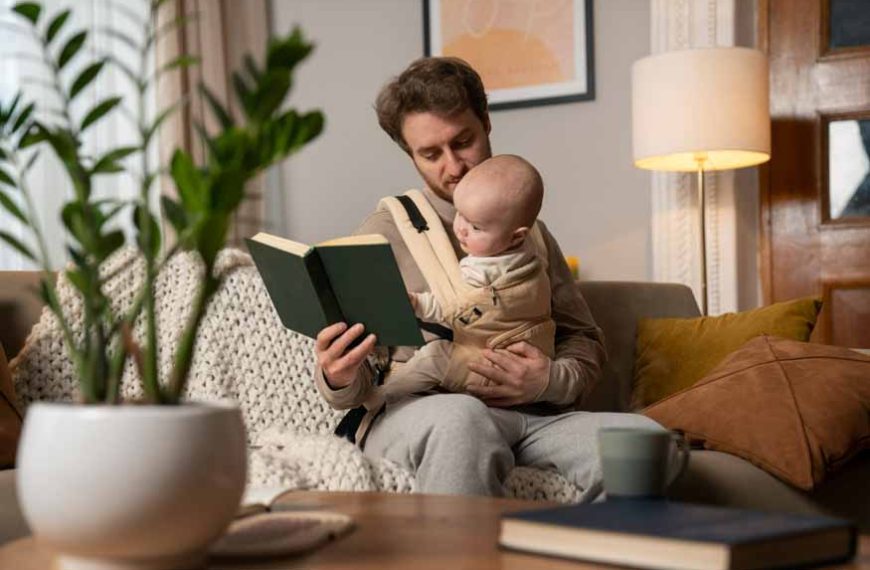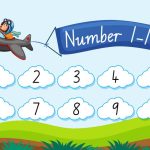Storytelling has been around since time immemorial. It is that rare practice capable of enriching children and adults alike. Alas! Over the years, this practice of storytelling has been largely relegated to the shadows. In its place, at the forefront, are digital gadgets. Devices that are a far cry from the powerful medium of storytelling.
The difference lies in the ‘human touch’ provided by storytelling, which is glaringly absent in technology despite all its advancements. The significance of stories for children is even greater. After all, the conversations we have right from our earliest childhood years, only serve to make a wonderful collage of stories.
“In children, storytelling provides many psychological and educational benefits, such as enhanced imagination to help visualise spoken words, improved vocabulary, and more refined communication skills.”
– Yabe and colleagues, The Fukushima society of medical science
Why Storytelling is Valuable for Kids?
Did you know what constitutes storytelling for children?
Storytelling, in a nutshell, is the art of using Stories to engage people. Of course, out here we are primarily concerned with getting those little minds engaged in Storytelling, and rightly so! There is absolutely no bigger impact that Storytelling has, than on the minds of young children.
What’s important to remember here is, children ‘remember’ stories far more vividly, than they do mere ‘facts.’ That is why Storytelling is ever so important to ‘glue’ things permanently into impressionable minds. Apart from that, of course, ‘Everybody loves a good Story!’
The Importance of Stories for the development of Children
Storytelling is a way of making even the most mundane things interesting. Did you know the secrets of the development of a story for children? Here’s a look at why there’s far more to storytelling than meets the eye.
- Stories that excite the imagination
- They develop social and emotional skills
- They keep children engaged
- They help instil values
- They build vocabulary
Storytelling will pique the curiosity of children and help them navigate their imagination seamlessly, taking them to exciting new places. The rich imagery evoked thus in the mind, will encourage children to explore their creativity and churn out experiences without the fear of being judged or criticised.
It’s certainly easier to talk about emotions in a story than having to face them upfront in real life! The process of weaving common emotions like sadness, frustration and anger into stories, provides little children an opportunity to understand their own emotions. Further it helps them regulate their emotions, the way characters do in the story.
Does your child have difficulty concentrating? Stories are a great way to keep kids engrossed for long periods of time, transporting them into another world they seldom wish to return from soon.
Stories can help your child imbibe values in the most effective fashion. Easy to read stories for kindergartners that are laced with sound morals, are definitely a better way to help kids walk on the right path, as opposed to any lectures or advice you might give them.
The significance of stories also lies in the fact that they help expand a child’s vocabulary. When they read stories, they are exposed to all sorts of different words. If they don’t know the meaning of a word, they will be eager to find out what it is. This expanding sense of vocabulary will only help your child to articulate themselves clearly over the passage of time. That’s how stories for children to read in kindergarten assume an even greater importance.
6 All-Time Favourite Children’s Stories to Read
Did you know about the classic stories for storytelling for children?
The benefits of reading are many, as we have just seen. However, how does one possibly zone in on the best children’s stories to read, given the vast amount of literature lying around?
Here’s a look at a handful of moral-infused stories for children in kindergarten to read. These easy-to-read stories for kindergarteners will only have them wanting to continually escape into the alternate worlds that books afford us all.
- The Boy who Cried Wolf
- The Midas Touch
- The Proud Rose
- The Golden Egg
- When Adversity Knocks
- A Glass of Milk
A boy looking after sheep grazing on a hillside would play truant, calling ‘Wolf!’ on several occasions when there was no wolf in sight. The villagers arrived each time, only to find they had been fooled. Until one day, when the wolf actually came and nobody responded to the boy’s cries.
Moral: Lying breaks trust
There was once a king called Midas, who asked the god Dionysus to grant him a wish. He wished that everything he touched would be turned into gold. It all seemed to be going great for Midas, until he touched his daughter and she turned into gold, too.
Moral: Greed will inevitably lead to downfall
The Proud Rose is one of the kids’ stories on radical acceptance of people. A rose that lived in a faraway desert often taunted the ‘ugly’ cactus next to her on account of its appearance. One scorching summer, she began to wilt. She saw a sparrow dip its beak into the cactus to get some water. Ashamed, she asked the cactus if she, too, could get some water.
Moral: Never judge anyone based on their appearance.
Golden Egg is one of the captivating kids stories. A farmer and his wife had a goose that laid a golden egg every day. One day the farmer came up with a plan of killing the goose so that they could get all the golden eggs at once. Foolishly, he cut it open to find only guts and blood. As the days went by, the farmer and his wife only became poorer.
Asha was getting tired of life. She told her father, who asked her to get an egg, two leaves and a potato. He then filled three vessels with water and put the respective items Asha brought, in each of them. Then he set the water to boil in all vessels. After 10 minutes, he told Asha to see the result of the experiment. The egg, earlier soft, was now hard. The potato was hard, and was now soft. As for the tea leaves? Why, they changed the water itself. Asha’s father asked her, ‘Are you an egg, potato or tea leaf?’
Moral: We can choose how to respond in difficult situations
A glass of milk is one of the kids’ stories with significant moral value. There was once a newspaper boy who felt very weak one day, when delivering his newspapers. He asked for food at every door but was denied every single time, until a young girl, taking pity on him, offered him a glass of milk. Years later, the girl, now an old woman, was terribly sick. The doctor spent months treating her, and finally she was cured. Afraid that she couldn’t pay the bill, she was shocked when the hospital handed her the bill and it read, ‘Paid in full, with a glass of milk’.
3 Secrets to Make Kids Enjoy Your Storytelling
Are you ready, then, to narrate Stories to your child? You might wish to use the following pointers, that will make for an undisputed Storytelling Experience!
- Do it with a sense of Excitement!
- Understand what they Like
- Practice, Practice, Practice!
The best way to get children engrossed in a story you tell them, is to do it with passion and flair! Try things like Voice Modulation and even the use of your hands, to make those stories all the more captivating!
As a parent, you are the best person to know what your child truly ‘likes’, be it Superheroes or Princesses. Start by introducing them to stories based on their individual preferences. That will only get them all the more eager for stories of all kinds, in the future to come.
The more you tell them stories, the more they will come to love them.
Tip: Break down stories into little bits that can be told to them over the course of a few days. Getting even a few words in daily, will get them hooked onto Storytelling in no time!
Conclusion
Storytelling is valuable for kids as it engages them creatively and imaginatively. We discussed storybook superpowers, recommended all-time favourite children’s stories for your loved one, and discussed the three top secrets of engaging them in storytelling. Which one will you start with today?
At EuroKids, storytelling is an important part of our curriculum. We strongly believe that it is the oldest form of teaching for children, that brings the vital process of language learning early on in their lives.
For informative and accurate articles on all things related to your new born-toddler’s development, growth, health and nutrition, follow EuroKids Blogs and do check out our nationally recognized preschools – EuroKids for the first step in your kid’s educational journey!















